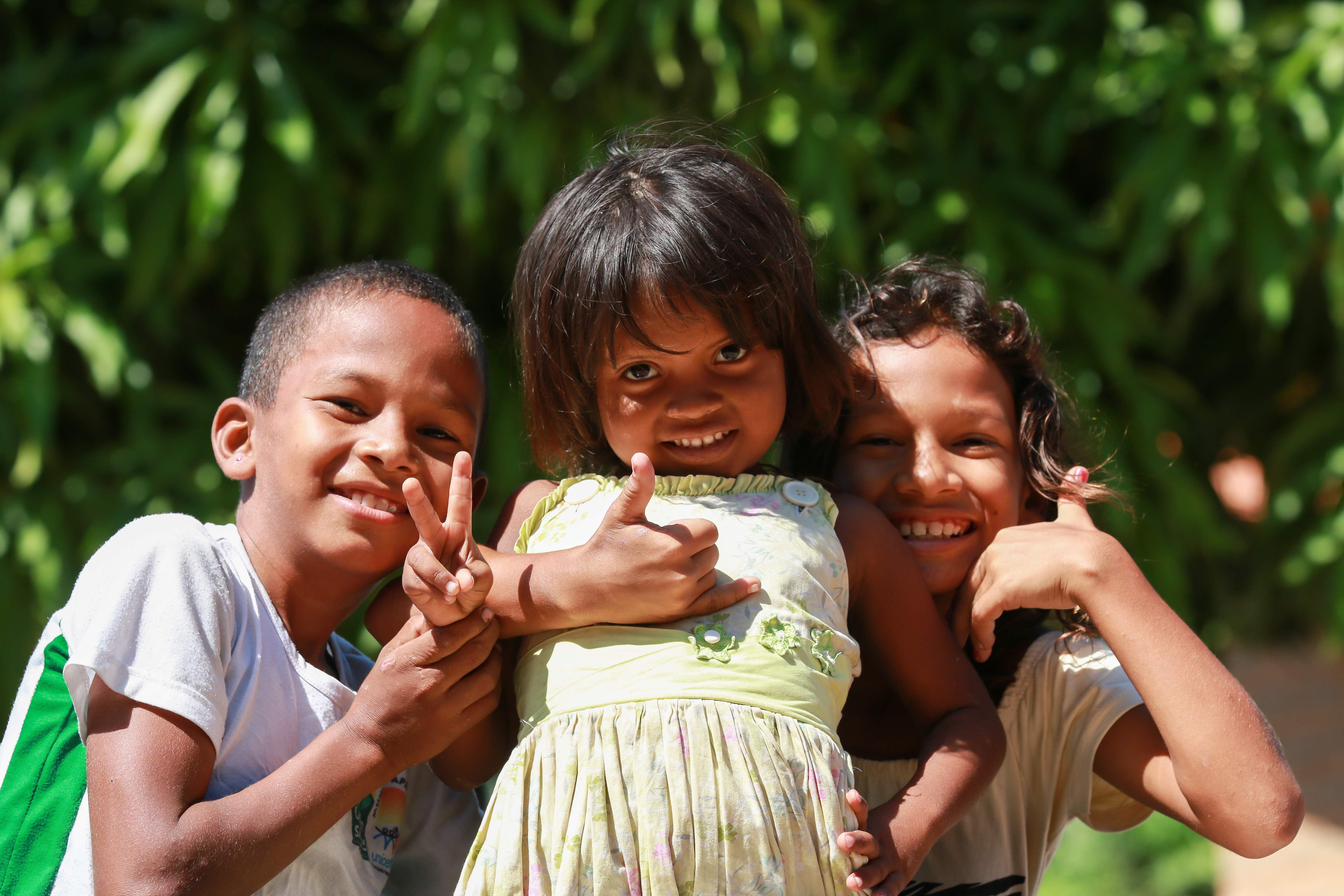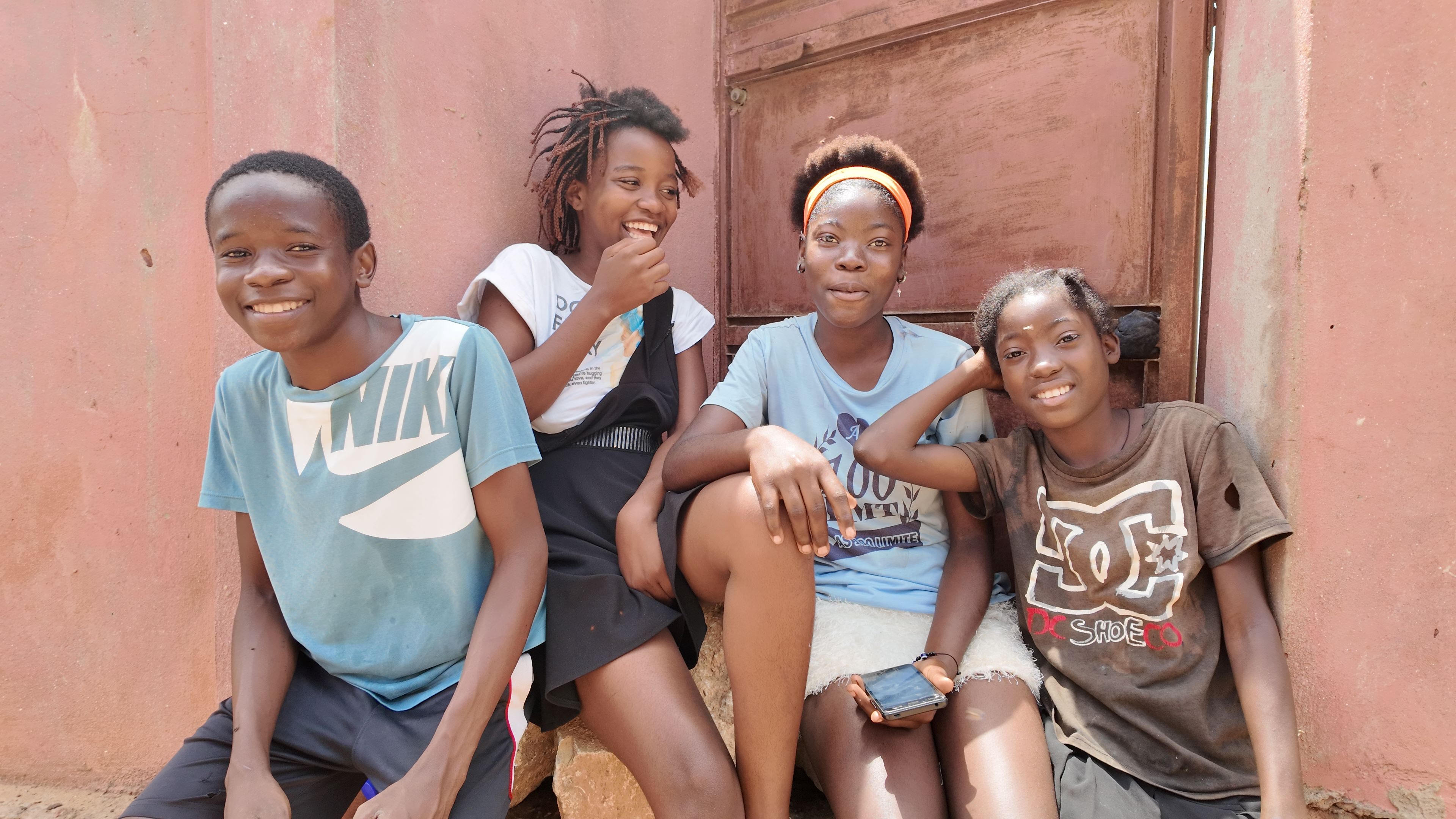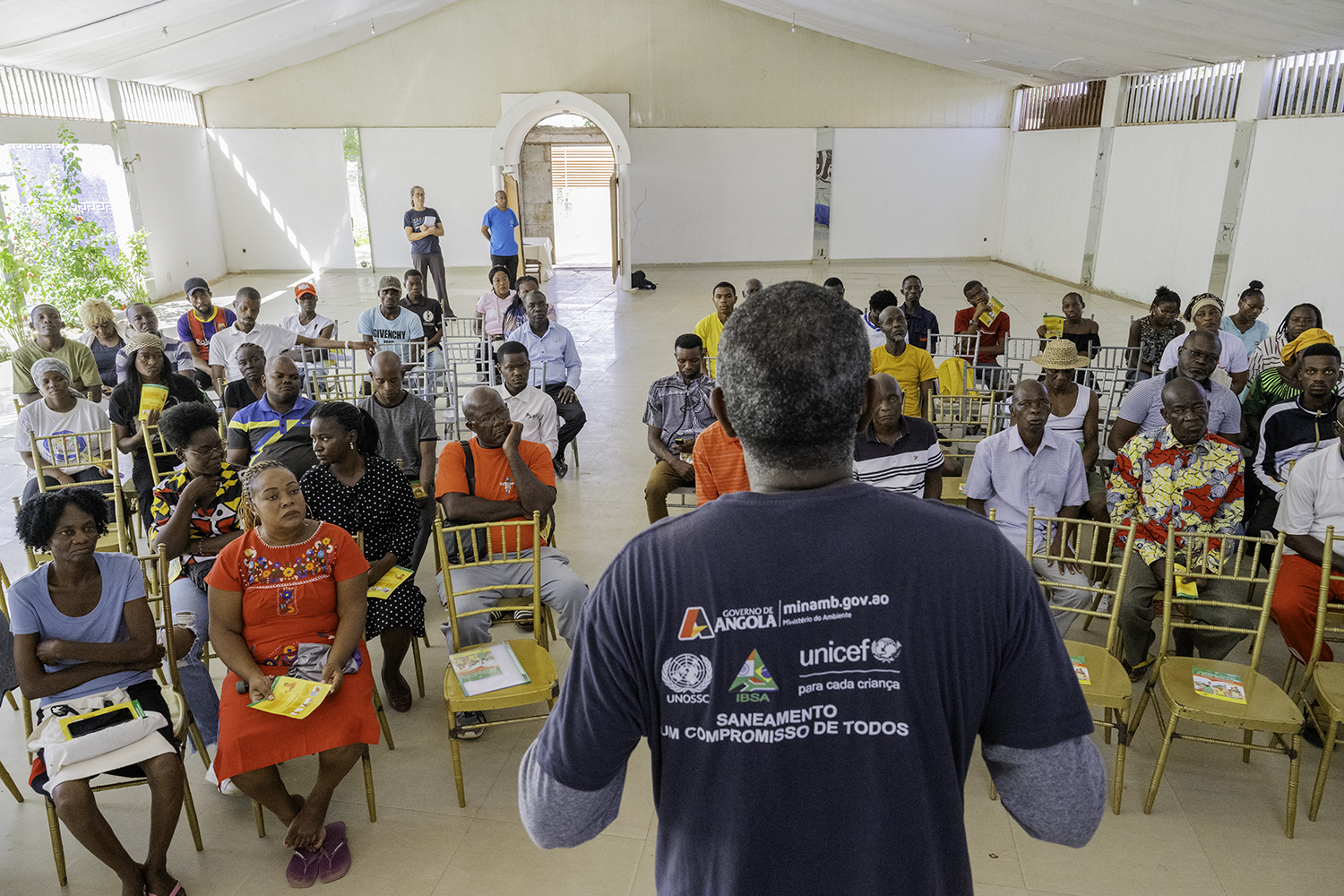In 2016, the Governments of Nepal and Brazil, jointly with UNICEF, initiated a Trilateral South-South Cooperation partnership to increase the inclusion of children and adolescents in Nepal’s governmental policies.
A delegation of nine people from Nepal arrived in Brazil on April 2, 2016, to embark on an 8-day mission throughout three Brazilian cities. The packed agenda included meetings and workshops with the Government of Brazil, UNICEF Brazil, research and social policy institutions and field visits.
The Nepalese delegation included the Secretary of the Ministry of Federal Affairs and Local Development (MOFALD), three Under-Secretaries and the Joint Secretary of the same MOFALD, the Joint Secretary of the Ministry of Finance, a Governance Advisor from the UK Department for International Development in Nepal (DFID/NEPAL), and the Chief of the Child Friendly Local Governance Unit and the Social Policy Specialist of UNICEF Nepal.
The mission goals were to gain insight into three main areas focus areas which Nepal is looking to strengthen: (i) social protection and social welfare programmes, (ii) fiscal space and decentralization, and (iii) local governance and child-friendly cities.
The delegation began their mission in Brasília, where the participants spent three days learning from key governmental representatives about all three topics. Meetings took place with members of the Presidency of the Republic and with the National Congress of Brazil and its Parliamentary Front for Children, including Senator Cristovam Buarque, who addressed the challenges in mobilizing the parliament for children’s issues. Interactive sessions were also organized with the Ministry of Planning, the National Treasury of the Ministry of Finance, the International Policy Centre for Inclusive Growth (IPC-IG), the Government of the Federal District, and UNICEF Brazil. In addition, two representatives from Nepal participated in the International Seminar on the Integration of Databases and Information Systems for the Improvement of Public Policy, organized by the Brazilian Ministry of Social Development and Fight against Hunger.
From the capital city, the Nepalese delegates traveled to the northeastern state of Alagoas, where they spent three days in Maceió, the state capital, and in the town of Arapiraca.
The Mayor of Maceió, Mr. Rui Palmeira, welcomed the delegation and launched the activities with an overview of the municipal management and the city’s engagement with UNICEF’s Platform for Urban Centres (PCU) initiative. According to Mayor Palmeira, “The work of the PCU has become a point of reference here in Maceió. To our delight, this delegation from Nepal has come to learn up close about this work that is being undertaken by the partnership between the Municipality of Maceió and UNICEF.” The agenda in Maceió again focused on the three main topics previously listed, however with a local perspective, in order to provide the delegation with firsthand experience on the implementation of policies and decentralization at the state and municipal levels.
In Arapiraca, a municipality that has twice received the UNICEF Municipal Seal of Approval, the mission visited several social programmes and initiatives which have been identified as best practices in the region. Arapiraca is a reference for other municipalities in the state, due to its work in the areas of full-time and interactive education, early childhood programmes to reduce maternal and infant mortality, and its developments for children and adolescents in line with the Municipal Seal of Approval methodology. In addition, the Mayor of Arapiraca, Célia Barbosa, acknowledged a proposal of city twinning between Arapiraca and Sunol, in Nepal, as two child-friendly cities that can learn from each other. The proposal will go ahead further along in the year.
The last leg of the mission took place in Rio de Janeiro and focused on data and statistics. An informative session with the Brazilian Institute of Geography and Statistics (IBGE) presented an overview of the Institute’s work in data collection, its integration with the government and civil society and the decentralization of information. The mission to Brazil was finalized on April 11 with a wrap-up meeting with UNICEF Brazil and the Brazilian Cooperation Agency (ABC), to discuss outcomes and possible next steps.
According to Anjali Pradhan, Chief of Child Friendly Local Governance at UNICEF Nepal, "I am positive that what we learnt will benefit Nepal in the new federal context, the children of Nepal and will surely strengthen our South-South Cooperation".
A subsequent expert mission to Nepal took place later the same year. As part of this mission, Representatives from the Brazilian Ministry of Social Development participated in the national conference on the expansion of the Nepalese child grant, so as to provide expert advice on the expansion strategy of the child grant program.
The Child Grant was introduced in 2010 with the objective of supporting young child nutrition through enhanced household economic security. The Ministry of Federal Affairs and Local Development (MOFALD), the implementing Ministry, was tasked with developing and implementing the expansion strategy. It is anticipated that complete national coverage will be achieved over a ten-year period. The national conference aimed to share the initial proposals for the expansion strategy with a range of key stakeholders working on social protection in Nepal, and invited external experts, with the objective of generating discussion and seeking practical inputs and suggestions on the way forward.
Initiative Evaluation
It 2019, it was evaluated that this initiative had several positive outcomes. Provisions related to child-friendly cities were included in the draft of the Local
Governance Act, which was approved in 2017.
As for social protection, exchanges with Brazil reinforced the commitment of Nepal’s government to expand the Child Grant. The exchanges under the Programme’s framework supported political buy-in from the government, as well as from traditional donors to make the expansion of the Child Grant possible. The Brazilian experience with Bolsa Família also inspired the design and support of the universal expansion of the Child Grant.


